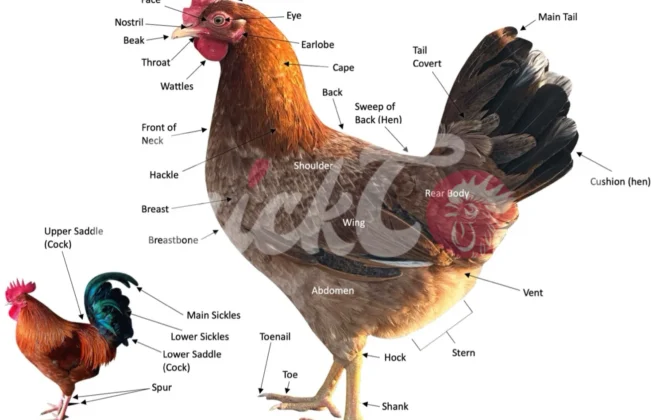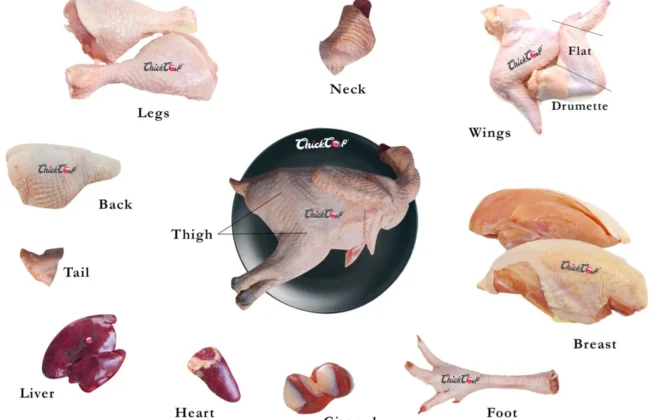
What is Chicken’s Parental Immunity?Â
When raising chickens, especially for breeding, it’s vital to understand the role of parental immunity and how it influences the health of newly hatched chicks. Along with immunity, poultry keepers must also be aware of common issues like pasting, poisoning, gut health, and zoonotic risks. This article dives into each of these aspects, providing practical insights to help you keep your flock healthy and thriving.
Parental Immunity: Passing on Protection
In healthy and robust breeder flocks, disease resistance is naturally passed down to chicks through the eggs. This transfer is most effective when breeder cocks and hens are strong, vigorous, and at least two years old. Breeders in good health, with consistent fertility and egg production, ensure their offspring inherit strong resistance against common diseases.
Longevity and vitality in parent birds are crucial. When breeder hens and cocks are kept in optimal conditions, their chicks are born with stronger immunity, giving them a better head start in life. This reduces early mortality and helps in raising a more resilient flock.
Pasting: A Common Chick Challenge
One of the first issues poultry keepers may notice in chicks is pasting — loose droppings sticking to the vent area. While it may seem minor, if ignored, pasting can block the vent and even cause death.
Causes of Pasting:
- Stress from temperature extremes (overheating or chilling, especially during shipping).
- Incorrect diet.
- Poor hydration.
Treatment:
- Gently run warm (not hot) water over the hardened droppings.
- Soften and carefully remove them.
- Pat the chick dry with a paper towel.
- Apply a little Neosporin or Vaseline to protect the area.
Prevention Tips:
- Ensure chicks drink water well before introducing solid food.
- Start with mashed hard-cooked egg and finely crushed grains along with starter ration.
- If pasting persists, switch to a better-quality starter feed or add probiotics.
Poison Risks in Chickens
While poisoning in chickens is relatively rare, it can happen and often goes unnoticed until it’s too late. Common toxins include:
- Pesticides, herbicides, rodenticides, and fungicide-treated seeds.
- Wood preservatives, rock salt, and antifreeze.
- Overuse of disinfectants like phenols in brooders.
- Cedar shavings or mothballs used in nests.
- Toxic plants consumed while foraging.
- Excessive levels of coccidiostats such as nicarbazin or monensin.
Baby chicks are especially vulnerable, particularly in poorly ventilated spaces where carbon monoxide or fumes may accumulate. Prevention comes down to careful management: avoid exposing birds to chemicals, maintain proper ventilation, and ensure their environment is free from unsafe materials.
Probiotics: Supporting Gut Health
Gut health is at the heart of a chicken’s overall immunity. The small intestine hosts a community of beneficial bacteria and yeasts (gut flora) that aid digestion, produce antibacterial compounds, and boost the immune system.
Natural sources of gut flora:
- Grains, meats, and fermented foods like yogurt or kefir.
- Properly composted litter in their environment.
When to add probiotics:
- Chicks raised in incubators (they acquire gut flora slower).
- Birds recovering from antibiotic treatment.
- During periods of stress.
How to provide probiotics:
- Dissolve in drinking water or mix with feed.
- Small amounts of live-culture yogurt (sparingly, to avoid diarrhea).
- Add apple cider vinegar to drinking water to support microbial balance.
Chickens allowed to forage naturally often get enough beneficial bacteria without supplements, but intervention can make a big difference when health is compromised.
Zoonosis: Protecting Humans and Birds
Chickens can sometimes carry diseases that pass to humans, known as zoonoses. While these usually don’t pose risks to healthy individuals, people with weakened immunity (pregnant women, diabetics, or those with chronic illness) should take extra precautions.
Ways zoonotic diseases spread:
- Handling infected chickens directly.
- Using contaminated equipment.
- Insects (flies and parasites carrying pathogens).
- Breathing dust contaminated with droppings or feathers.
- Eating undercooked meat or eggs.
Prevention:
- Practice good hygiene (wash hands after handling chickens).
- Keep chicken coops clean and well-ventilated.
- Cook meat and eggs thoroughly.
- Use protective gloves when handling sick birds or cleaning droppings.
Final Thoughts
A successful poultry flock starts with healthy breeders that pass on strong immunity to their chicks. But beyond genetics, day-to-day management matters just as much. Addressing challenges like pasting early, preventing exposure to poisons, supporting gut health with probiotics, and protecting both birds and humans from zoonotic risks are all critical steps in raising a thriving flock.
By taking these measures, you not only protect your chickens but also safeguard your investment, ensuring happier and healthier birds that reward you with consistent productivity.
At ChickCoop®, we’re more than just a Chicken Company, writing interesting blogs about them– we’re your trusted partner in building a modernized, sustainable and profitable farm. From breed selection to buy-back support, feed guidance, and modern farm management tips, we ensure farmers like you achieve the best results and profits.
Call us today to discuss your farming needs
📧 Email us at: write@chickcoop.in
đź“ž Call us: +91-9939209699



I found your article very informative. Do keep posting such articles! Thank You.